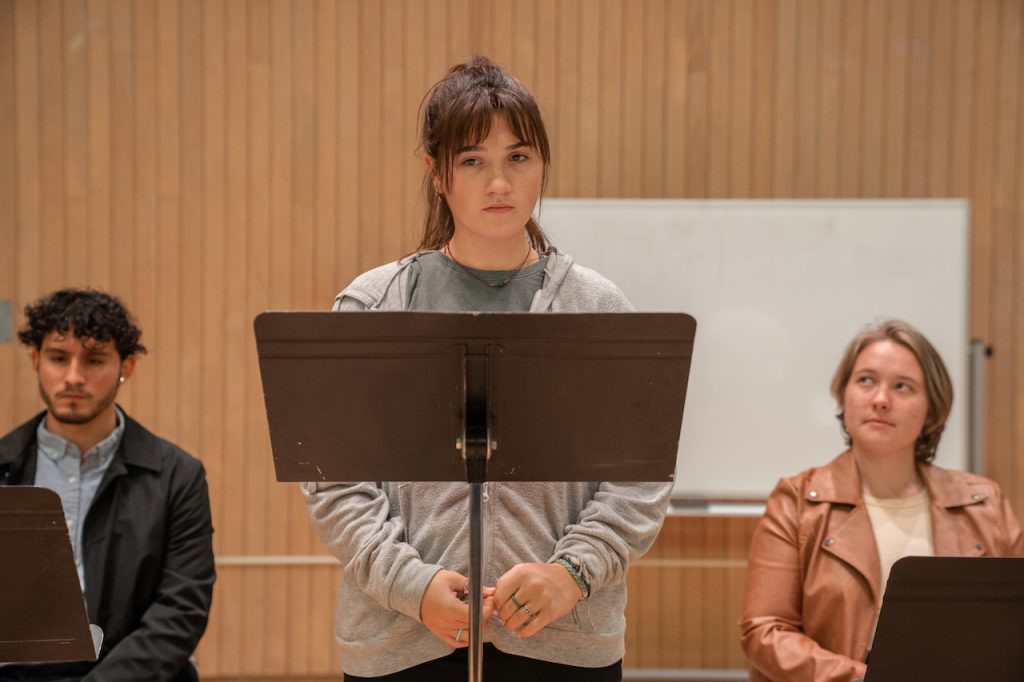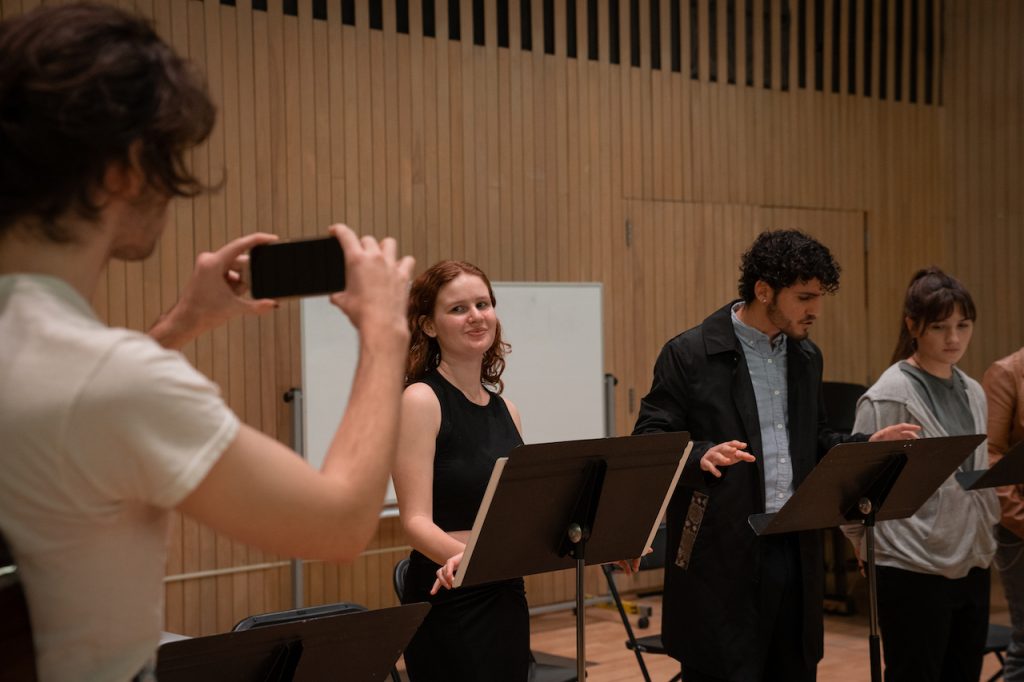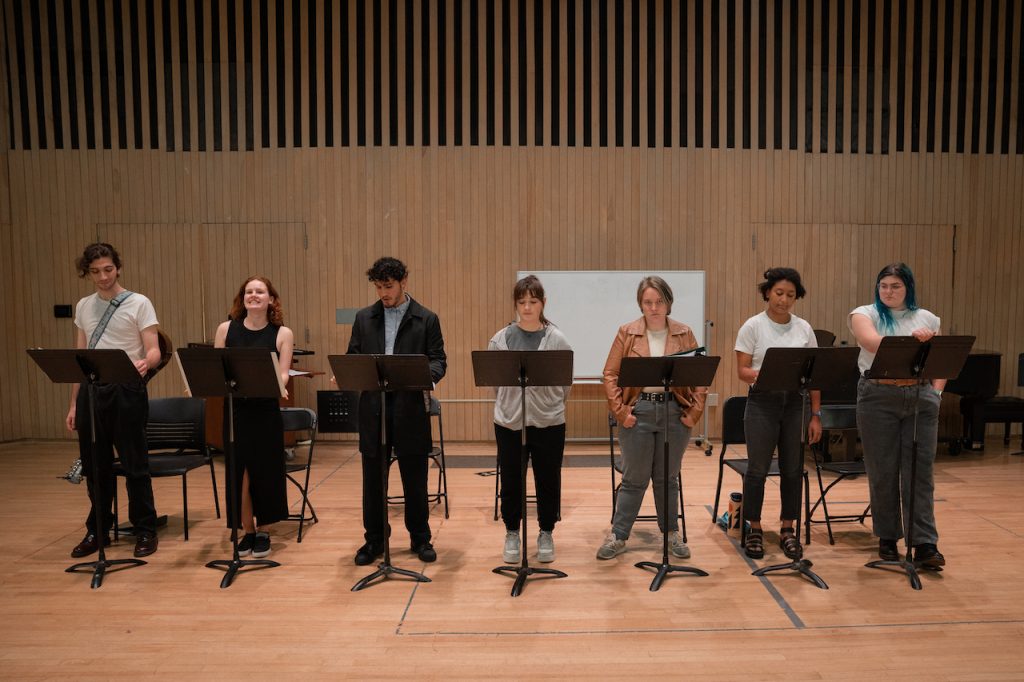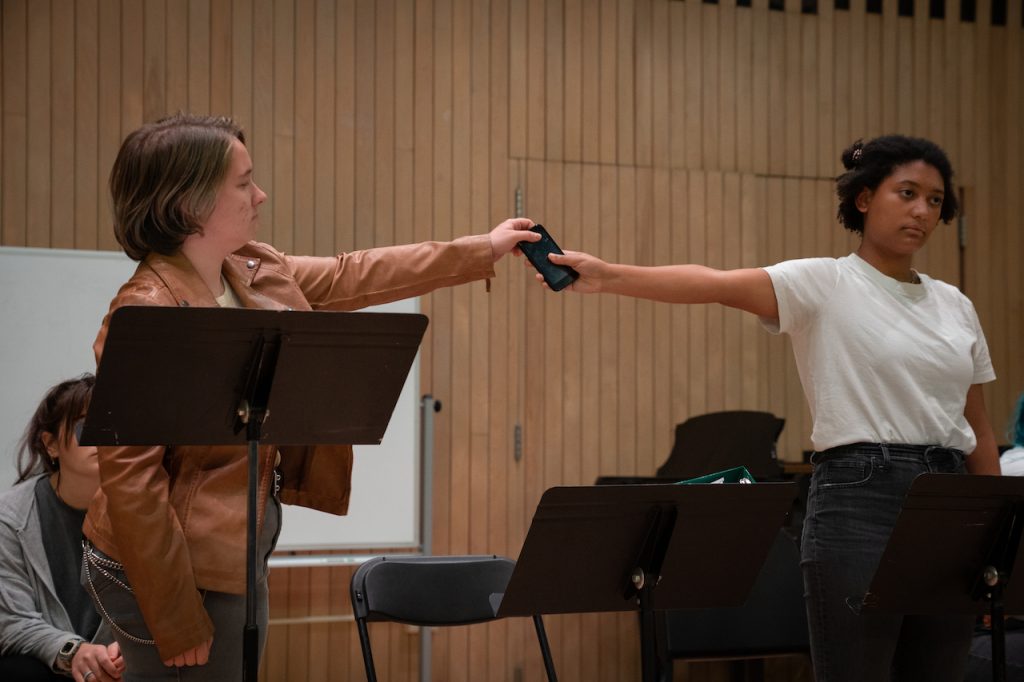By Carter Jones ’23

On Friday, October 21st, Skidmore’s Filene Hall saw our very own John Michael DiResta’s adaptation of Sophocles’ Antigone. The reading attempts to modernize the narrative of the multi-century year old work primarily through adapting the dialogue and scenarios of Sophocles’ rendition. Dialogue for the characters of Creon and Euridice (Javier Soto and Kate Hoag) comes across as more politician than parental, as both of them reaffirm to Antigone and Haemon (Tait Brencher and Max McGuire), this wedding will be happening.

These “parenticians” express this most when butting heads with the respective fiancé they find themselves with. Creon, for example, is more than willing to use any amount of power he has over Antigone to convince her to go to her wedding, something Antigone resists, knowing her father’s desire is only in service to himself. Creon, for his part, is incredibly anxious about getting Antigone to Phoenicia, seeing that the delay of this wedding has been blown up on social media, inadvertently harming his social standing. Instead of immediately succumbing to Creon’s selfish desires, there is a clear enjoyment in Antigone’s resistance to her uncle’s will. Antigone, while Creon is pleading for her to come, is set on practicing mindfulness, literally digging herself a hole as large as the metaphorical hole Creon has put her in. It would be remiss to not mention how funny these interactions can be, where we see the most powerful man in the world squirm and struggle to impose his will on Antigone, who is content with her shovel and her hole.

Of course, parallel to Creon and Antigone are Eurydice and Haemon, Haemon not enjoying the prospect of their cousin-wedding anymore than Antigone. Haemon is very direct about this with Eurydice, insisting they leaves Thebes with their mother in order to escape the tyrannical Creon. Haemon is adamant about this, but Eurydice will not hear it. According to her, Creon is the most powerful man in the world, and that alone is sufficient means to make her love him. Haemon’s insistence is persistent throughout the play, but Eurydice’s commitment to espousing her husband’s virtues reads almost like a trained media-response, a warm and affectionate smile dawning her face the very instant a camera is trained on her. Haemon, by contrast, cannot bring themselves to support Creon, painfully aware of how different they have been treated by their father after coming out as non-binary.

It would be remiss to discuss this show without also discussing the reimagining of Antigone’s chorus of souls (Played by Jordan Gonzales, Olivia Berenson, and Jordan Zickmann). The chorus, in the original work of Antigone have elderly men singing about the whims of fate. Instead, the chorus in this work is described as a “chorus of dissociated teens”, whose revelations over the course of the reading come as 2010 -era rock music. The intended image of the chorus members sees them staring at their phone screens in the background, drinking and/or smoking, unengaged with the world around them – relatively similar to Antigone’s distant and obstinate behavior. Perhaps Antigone helps us see why it is so easy for youth to dissociate – in a world where the behaviors of people more powerful than you limit your individual autonomy, why wouldn’t you dissociate?
